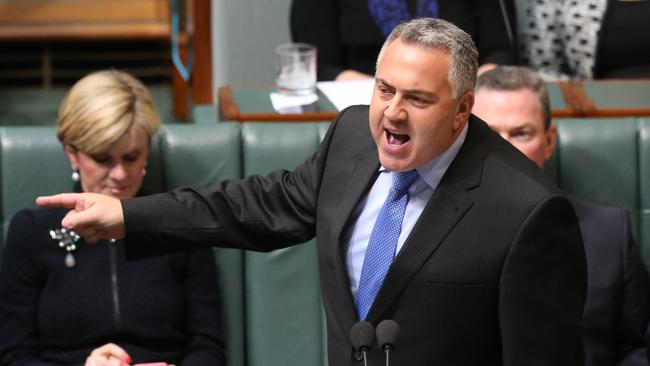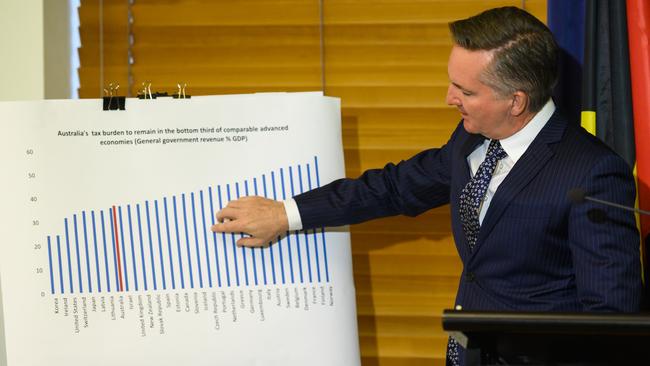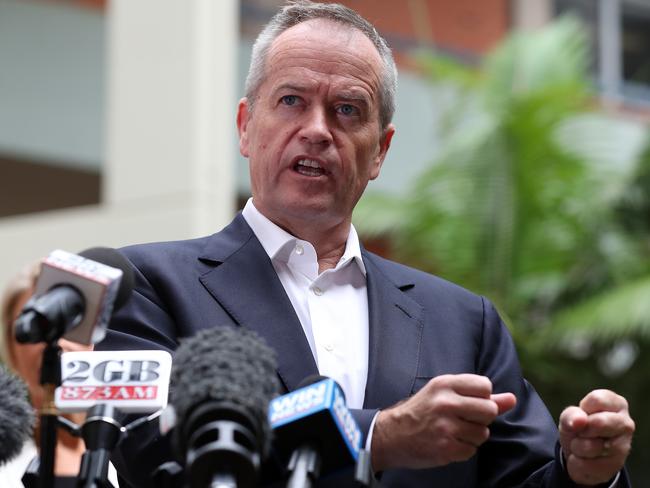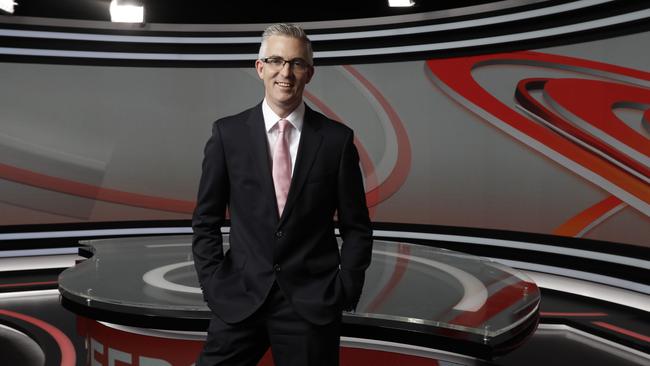David Speers: Labor portraying itself as economic managers
Labor has attempted to portray itself as responsible economic managers by releasing their costings early, but they have opened themselves up to scrutiny for the final week of the election, writes David Speers.
- Liberals lash Labor's costings as a 'con job'
- It’s no surprise a bank left the ‘i’ out of responsibility
In 2013 Joe Hockey continued the long tradition of oppositions releasing policy costings in the final few frenzied days of an election campaign.
In fact, he took it to a new extreme. The numbers were dropped at 2.30pm on the Thursday before the Saturday election. The blackout on campaign advertising had already kicked in.
For decades, oppositions have done this. The idea is to sneak out the numbers so late that anything problematic or outright dodgy is lost in the hurly burly of the race to the finish line.

READ MORE:
THINK YOU KNOW AUSSIE POLITICS? TEST YOURSELF
WHY SCOMO AND SHORTEN HAVE DROPPED BOATS FROM AGENDA
Yesterday Chris Bowen broke with this unhappy tradition and released the Labor Party’s policy costings an unprecedented eight days before the election.
This was the final in a series of Labor gambles at this election. And it was a calculated one.
Labor wants everyone to see these numbers. It wants to make a virtue of what’s typically been its greatest vulnerability — budget management.
Bill Shorten has already taken big risks with his tax hits on retirees, high-income earners and property investors.
Now he’s taking a big risk by allowing proper scrutiny of his costings.
And he’s allowing this scrutiny to dominate the final week of campaigning.
It’s a bold play.
The costings, which have been done by the independent Parliamentary Budget Office and double-checked by a panel of esteemed former public servants and accountants, are revealing.
They confirm the scale of Labor’s tax changes, particularly when it comes to retirees. Over the next 10 years, ending cash refunds for franking credits alone would raise an enormous $58 billion.

This underlines the scale of the change. If Labor wins the election and manages to legislate the end of these franking credits, it’s hard to see a future Coalition government being able to bring them back. They carry a huge cost.
Then there’s Labor’s plans to wind back negative gearing and capital gains tax breaks, which would raise a further $32 billion.
Not proceeding with the government’s tax cuts for middle and high income earners would save the budget more than $200 billion, although Bowen says Labor would offer more tax cuts in about four years to ensure it’s not raking in too much.
As comprehensive as the costings appear, Labor has left a few important details out, most notably the impact of its higher tax take on the economy. This was either too difficult to determine or more likely a detail Labor didn’t really want to know.
Taking this much money out of the economy is bound to have an impact on growth, and the government is right to press Bill Shorten for an answer on this.
Even a small reduction in growth can make a big difference to jobs, wages and superannuation balances.

Then there are some of the things Labor wants to work out only in government, like the cost of any increase to the Newstart Allowance or lifting the refugee intake.
Nonetheless, Labor is on strong ground arguing we need bigger surpluses and a faster reduction of Australia’s record level of debt.
Under Labor, debt would be $17 billion lower over the next four years and $87 billion lower over the decade. This would save around $13 billion in wasted interest payments.
As both sides agree, the international economic outlook is a worry.
In fact, while Scott Morrison and Bill Shorten have been slugging it out for the past four weeks over everything from climate policy to childcare, the global headwinds have become more of a gale.
The US-China trade war has worsened, North Korea has begun lobbing missiles into the sea again and the Brexit crisis has deepened.
It would be naive to think Australia can sail through these choppy waters unscathed.
The government can’t criticise the idea of bigger surpluses and faster debt retirement. Nor can it deny Labor’s plans will raise a lot of money. The Coalition itself began the campaign by warning Labor’s tax plans would raise $387 billion. It’s rolled out this figure every day since.
We now know Labor would only be spending around half of that $387 billion with its various election promises. The rest would be banked.

The government’s line of attack was therefore to muddy the waters.
It went after Labor’s record, suggesting it can’t be believed or trusted. Just look at what happened last time, and so on.
These Labor costings bring the final week of campaigning back to what this election is all about.
Are voters prepared to radically change the status quo?
Are they willing to wind back tax breaks and hit higher-income earners with more tax, in return for more spending on health, childcare and schools? Will they also embrace the idea of half that money going towards paying down debt?
And are they going to trust Bill Shorten to deliver all that without risking economic growth?
We’ll find out next weekend.


